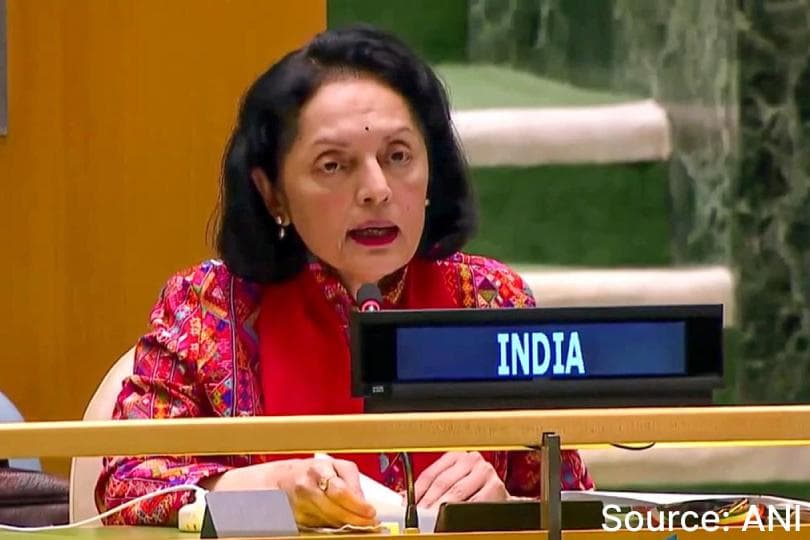India leads the Charge for UNSC Revamp

India, standing alongside its allies in the G4 nations - Brazil, Germany, and Japan, is spearheading a push for reform within the United Nations Security Council (UNSC). India's Permanent Representative to the UN, Ambassador Ruchira Kamboj, presented a robust and detailed 'G4 model' for UNSC reform, emphasising a shift towards a more inclusive and representative Council.
The G4 model, laid out by Ambassador Kamboj, advocates for an increase in the Security Council's membership from 15 to 25-26, adding six new permanent members alongside four or five non-permanent members. Crucially, this model addresses the longstanding issue of under-representation and un-representation of key regions, emphasising the need for a Council that reflects today's geopolitical realities which is a multipolar world.
The G4 model stresses that the Council's current composition, established in 1945, no longer adequately represents the diversity and complexity of the modern world.
In this proposed framework, two new permanent members each are suggested from Africa and Asia Pacific states. Other suggested members are countries from Latin American, Caribbean, and one from Western European and Other states.
Ambassador Kamboj highlighted that the G4 model does not specify which member states would occupy these new permanent seats, underlining the democratic and inclusive nature of the proposed election process by the General Assembly. Moreover, the G4 model presents a significant move towards flexibility on the contentious veto issue. While new permanent members would carry the same responsibilities as current permanent members, they would not immediately exercise the veto until a decision is made during a review.
India's strong stance on UNSC reform resonates with the urgent need for a Council that can effectively address today's international challenges. The G4 model's emphasis on representation from the Global South, including Africa, Asia, and Latin America, echoes the aspirations of developing countries for equality on the global stage.
By taking this proactive approach and displaying flexibility on the veto issue, India and its G4 allies are paving the way for constructive negotiations towards a more equitable and effective Security Council. This initiative is not just about India's interests; it's about championing fairness, inclusivity, and responsiveness to the evolving global landscape. Through the G4 model, India is leading the charge for a reformed UNSC that better serves the interests of all nations.


































